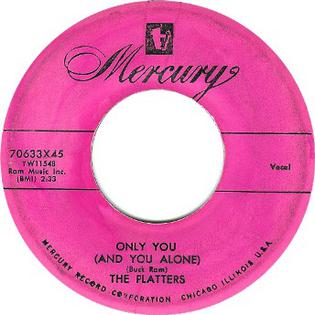
"Only You (And You Alone)" (often shortened to "Only You") is a pop song composed by Buck Ram. It was originally recorded by The Platters with lead vocals by Tony Williams in 1955.

"Drift Away" is a song by Mentor Williams, written in 1970 and originally recorded by British singer Mike Berry on his 1972 album Drift Away. A version by John Henry Kurtz was released two months later in November 1972. Mentor Williams was a country songwriter, and John Henry Kurtz was an actor and swamp rock singer. It was later given to soul singer Dobie Gray for whom it became a surprise international hit. In 1973, the song became Gray's biggest hit, peaking at number five on the US Billboard Hot 100 and receiving a gold certification from the Recording Industry Association of America (RIAA). The song has been covered by numerous musicians.

"Lovesong" is a song by English rock band the Cure, released as the third single from their eighth studio album, Disintegration (1989), on 21 August 1989. The song saw considerable success in the United States, where it reached the number-two position in October 1989 and became the band's only top-10 entry on the Billboard Hot 100. In the United Kingdom, the single charted at number 18, and it peaked within the top 20 in Canada and Ireland.

Donell Jones is an American R&B singer, songwriter, and record producer from Chicago, Illinois. He met record producer Eddie F in the mid-1990s and signed with his record label Untouchables Entertainment, beginning his career as a songwriter for its parent label, LaFace Records. He signed with the label as a recording act to release his debut studio album, My Heart (1996), which was met with lukewarm commercial reception despite yielding his first Billboard Hot 100 entries with its singles "In the Hood", and his cover of Stevie Wonder's "Knocks Me Off My Feet."
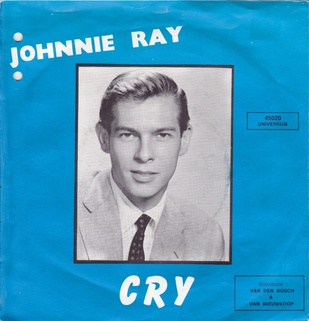
"Cry" is a 1951 popular song written by Churchill Kohlman. The song was first recorded by Ruth Casey on the Cadillac label. The biggest hit version was recorded in New York City by Johnnie Ray and The Four Lads on October 16, 1951. Singer Ronnie Dove also had a big hit with the song in 1966.
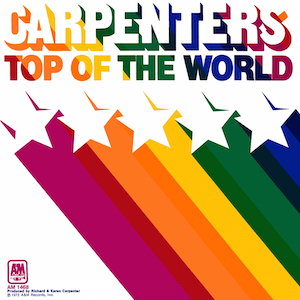
"Top of the World" is a 1972 song written and composed by Richard Carpenter and John Bettis and first recorded by American pop duo Carpenters. It was a Billboard Hot 100 No. 1 hit for the duo for two consecutive weeks in 1973.

"When a Man Loves a Woman" is a song written by Calvin Lewis and Andrew Wright and first recorded by Percy Sledge in 1966 at Norala Sound Studio in Sheffield, Alabama. It made number one on both the Billboard Hot 100 and R&B singles charts. Country singer John Wesley Ryles had a minor hit with his version of the song in 1976. Singer and actress Bette Midler recorded the song and had a Top 40 hit with her version in 1980. In 1991, Michael Bolton recorded the song and his version peaked at number one on both the Billboard Hot 100 chart and the Billboard Adult Contemporary Singles chart.

"Old Flames Can't Hold a Candle to You" is a country song written by singer-songwriter Pebe Sebert and Hugh Moffatt. It was a number 14 U.S. country hit for Joe Sun in 1978, and a number 86 hit for Brian Collins the same year. It was later covered by Dolly Parton, who took it to the top of the U.S. country singles charts in August 1980. Parton included her version on her 1980 Dolly, Dolly, Dolly album, and it was released as the album's second single after the success of "Starting Over Again". In 2013, Sebert's daughter, Kesha, released an acoustic cover of the song as part of her extended play Deconstructed. A new version featuring Parton is a track on Kesha's 2017 album Rainbow.

"Love Will Lead You Back" is a song recorded by American singer Taylor Dayne for her second studio album, Can't Fight Fate (1989). Written by Diane Warren and produced by Ric Wake, the song was released on January 12, 1990, by Arista Records as the second single from the album.

"To Sir with Love" is the theme from James Clavell's 1967 film To Sir, with Love. The song was performed by British singer and actress Lulu, and written by Don Black and Mark London. Mickie Most produced the record, with Mike Leander arranging and conducting. The song peaked at the top of the Billboard Hot 100, and became the best-selling single of 1967 in the United States.
"When You Walk in the Room" is a song written and recorded by Jackie DeShannon. It was initially released as a single on November 23, 1963, as the B-side to "Till You Say You'll Be Mine". It was re-released as an A-side in September 1964, and later included on the album Breakin' It Up on the Beatles Tour. The single charted on the US Billboard Hot 100, peaking at number 99.

"If You Asked Me To" is a song written by American songwriter Diane Warren and produced by Stewart Levine and Aaron Zigman. It was originally recorded by American singer Patti LaBelle for her ninth studio album, Be Yourself (1989), and also for the soundtrack to the James Bond film Licence to Kill. The song was released as the soundtrack's second single on June 12, 1989 by MCA Records. The lyrics are from the point of view of a woman who pleads to her significant other: "If you asked me to, I just might change my mind, and let you in my life forever". Three years later, Canadian singer Celine Dion covered the song for her 1992 self-titled second English-language studio album. Released as the album's second single, Dion's version topped the Canadian charts and peaked at number four on the US Billboard Hot 100.
"I Dreamed a Dream" is a song from the 1980 musical Les Misérables. It is a solo that is sung by the character Fantine during the first act. The music is by Claude-Michel Schönberg, with orchestrations by John Cameron. The English lyrics are by Herbert Kretzmer, based on the original French libretto by Alain Boublil and Jean-Marc Natel from the original French production.
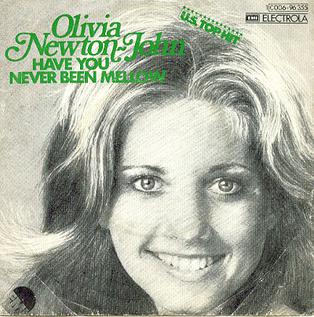
"Have You Never Been Mellow" is a song recorded by British-Australian singer Olivia Newton-John for her 1975 fifth studio album of the same name. Written and produced by John Farrar, the song was released as the lead single from the album in January 1975.

"Where Is the Love" is a popular song written by Ralph MacDonald and William Salter, and recorded by Roberta Flack and Donny Hathaway. Released in 1972 from their album, Roberta Flack & Donny Hathaway. It peaked at number five on the Billboard Hot 100 singles chart and spent a week each at number one on the Billboard Easy Listening chart and R&B chart. Billboard ranked it as the No. 58 song for 1972. The song won a Grammy Award for Best Pop Performance by a Duo or Group with Vocals.
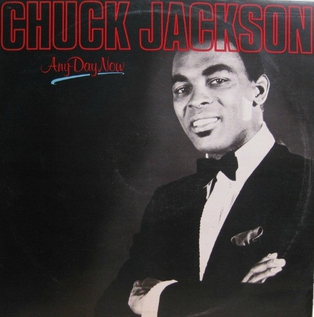
"Any Day Now" is a popular song written by Burt Bacharach and Bob Hilliard in 1962. It has been recorded by numerous artists over the years, including notable versions by Chuck Jackson in 1962, Alan Price in 1965, Elvis Presley in 1969, Scott Walker in 1973 and Ronnie Milsap in 1982. In the lyrics, the singer predicts the imminent demise of a romantic relationship and describes the sadness this will leave.

"Whatever You Like" is a song by the American rapper T.I., released as the lead single from his sixth studio album, Paper Trail (2008). The song was written by T.I. and David Siegel, alongside the song's producer Jim Jonsin. "Whatever You Like" served as the third single from Paper Trail in the United Kingdom with a release date of June 1, 2009.

"Don't Call It Love" is a song first released by American singer Kim Carnes on her 1981 album Mistaken Identity. The following year it was covered by Captain and Tennille and Dusty Springfield from their albums More Than Dancing and White Heat. There is also a cover version by Venezuelan artist Jorge Aguilar recorded in 1985 on his Siempre juntos album, called "Esto es amor" with adapted lyrics sung in spanish.
"The Race Is On" is a song written by Don Rollins and made a hit on the country music charts by George Jones and on the pop and easy listening charts by the unrelated Jack Jones. George's version was the first single released from his 1965 album of the same name. Released as a single in September 1964, it peaked at number three on the Billboard Hot Country Singles chart and at number 96 on the Billboard Hot 100 in January 1965. Jack's version topped Billboard's Easy Listening chart and reached number 15 on the Hot 100 the same year. The two recordings combined to reach number 12 on the Cashbox charts, which combined all covers of the same song in one listing and thus gave George Jones his only top-40 hit. The song uses thoroughbred horse racing as the metaphor for the singer's romantic relationships.

"Sea of Heartbreak" is a song written by Paul Hampton and Hal David and recorded by Don Gibson in 1961. The song reached #2 on the Billboard Hot Country Singles & Tracks chart.

















